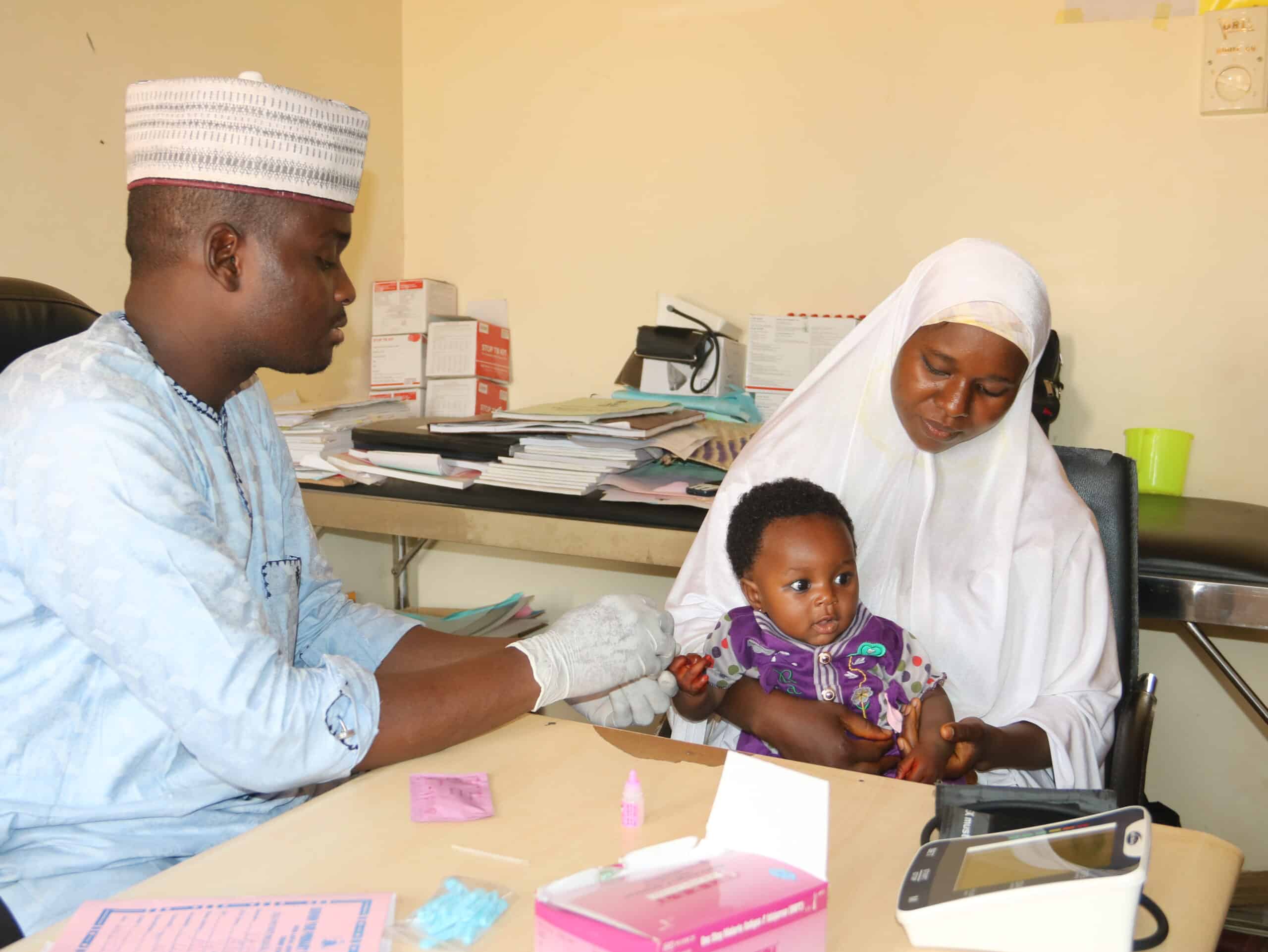The use of interventions designed to ensure every person with a fever who presents at a medical facility is tested for malaria – and that providers have confidence in the accuracy of the rapid diagnostic tests – successfully increased the number of tests given and reduced the amount of unnecessary anti-malarial medication prescribed, new research suggests.
The findings from the Breakthrough ACTION-Nigeria project are published in the journal Global Health: Science and Practice. The results show that using a series of simple interventions can help ensure that those with malaria are treated properly, while also encouraging providers to look harder for the true cause of the fever if patients test negative for the mosquito-borne illness.
“There might not be a single solution to creating the behavior change you desire,” says the Johns Hopkins Center for Communication Programs’ Bolatito Aiyenigba, deputy project director for malaria and tuberculosis. “But if you use the behavioral economics lens to look at the barriers to properly managing fever cases, you might find out that there are multiple interventions you might need to put in place for you to get to your desired behavior change. That is the lesson we learned.”
Fever can be a sign of malaria, an infectious disease that killed an estimated 619,000 people in 2021, most of them in sub-Saharan Africa. Nigerians, and others across Africa, are urged to seek immediate treatment if they or their children have one.
But getting tested wasn’t always easy. The Breakthrough ACTION-Nigeria team found the process was cumbersome. Often, a patient would wait to be seen by a medical provider and then get tested and swamped providers didn’t want to see a patient for a second time to share results. Sometimes, she says, providers wouldn’t wait for test results and would just prescribe antimalarial medication, resulting in over-use of a sometimes-scarce treatment. Still others worried that parents would be offended if their fever-stricken children weren’t offered anti-malaria treatments, whether they tested positive or not.
The new behavior change system was set up in 12 health facilities in three Nigerian states (Akwa Ibom, Kebbi and Nasarawa) as part of a three-month pilot program that made it easier for patients with fevers to receive immediate testing upon arrival, so that results would be available by the time they could see the provider. This lessened the workload for the providers and gave people quicker diagnoses, Aiyenigba says.
Another piece of the equation was educating providers about the accuracy of rapid diagnostic tests. Many had misconceptions about the tests, doubting their precision because of the preconceived idea that malaria is widely endemic, so negative test results were viewed with doubts.
Sessions were held in each facility to explain the science behind the malaria tests, equating their validity to when rapid HIV tests were rolled out years ago. No one doubted those results, Aiyenigba says.
“We have the HIV rapid test kits, and when they come back positive, nobody doubts it,” she says. “So, if you have a malaria rapid test kit, why would you doubt the result when it says it is negative? We had to try to convince them that the same science that produced the HIV rapid test kits produced the rapid malaria test kits as well. And when the test is negative for malaria, then you have to look for other causes of fever in the client.”
Fevers can be a sign of other diseases beyond malaria and, when a patient is negative for malaria, providers must look for a correct diagnosis. Pneumonia, for example, could be the cause and those with pneumonia, especially children, and can be deadly if left untreated.
The successful pilot programs have been extended in the three states where they were conducted, and work is underway to bring these programs to more clinics in Nigeria, Aiyenigba says.
“When Knowledge Is Not Enough: Applying a Behavioral Design Approach to Improve Fever Case Management in Nigeria” was written by Faraz Haqqi, Angela Acosta, Sriram Sridharan, Emily Zimmerman, Temitope Ogunbi, Eno’bong Idiong, Uwem Inyang, Foyeke Oyedokun-Adebagbo, Jose Tchofa, Nene Diallo, Emma Mtiro, Chukwu Okoronkwo and Bolatito Aiyenigba.





